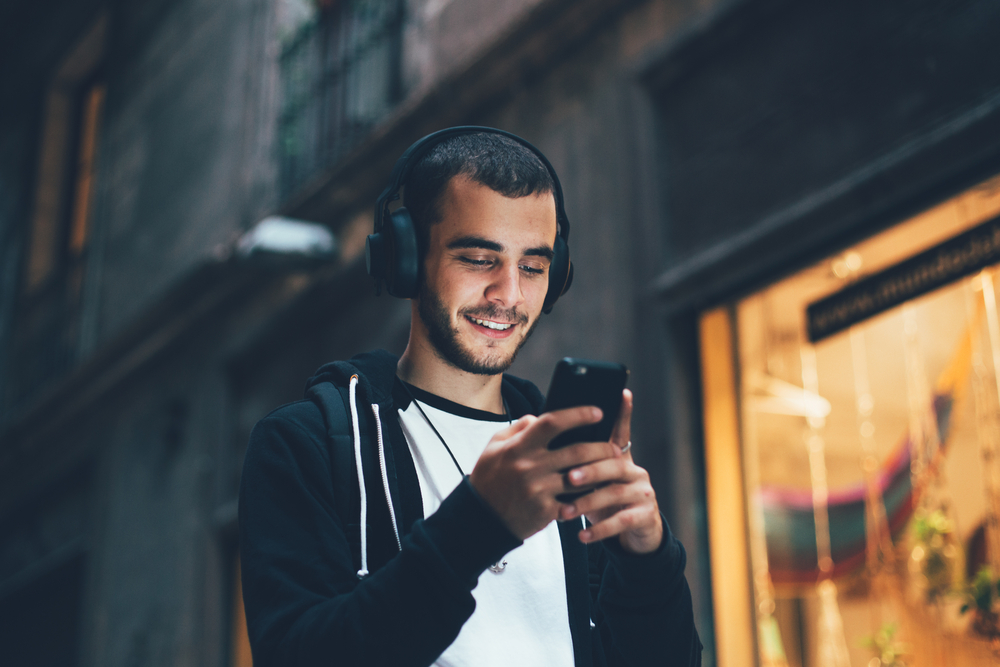
Say hello to James, an avid music lover who seamlessly incorporates Spotify into his work regimen, switches over to Pandora during his jogs, and curates playlists for every occasion imaginable, from cardio programs to cooking and even gaming. His headphones are his constant companions, transforming his life into a fully soundtracked experience. James takes comfort and delight in the captivating world of music, but the very source of his joy might be harming his treasured ability to hear without him realizing it.
There are safe ways to appreciate music and ways that are more risky to your hearing health. Regrettably, many of us tend to incline towards the latter.
How does prolonged music exposure lead to hearing loss?
Extended exposure to loud music can lead to a decrease in your auditory function. Hearing loss is typically connected to getting older, but recent studies indicate that it is mainly caused by damage from exposure to loud sounds instead of being a natural part of getting older.
Younger individuals are more sensitive to noise-induced damage as their ears are still in the developmental phase. However, teenagers tend to disregard the possible dangers of excessive noise over time. So there’s an epidemic of younger individuals with hearing loss, thanks, in part, to rampant high-volume headphone use.
Is it possible to enjoy music safely?
Listening to music at full blast with no limitations is the most hazardous strategy. There is a way to enjoy to music more safely, which typically means decreasing the volume. The suggested safe volume levels are typically as follows:
- Adults should restrict their device listening time to 40 hours or less and make sure the volume stays under 80 dB.
- For Teens and Minors: You can still listen for 40 hours, but keep the volume level lower than 75 dB.
Breaking it down, you’re dealing with about 5 hours and 40 minutes of listening each day. That might seem like a lot, but it can go by relatively quickly. Even still, most people have a fairly strong concept of keeping track of time– it’s something we’re trained to do effectively from a really young age.
The more challenging part is monitoring your volume. On most smart devices, computers, and televisions, volume is not computed in decibels. It’s assessed on some arbitrary scale. Perhaps it’s 1-100. But maybe it’s 1-16. You might not have any clue what the max volume on your device is, or how close to the max you are.
How to effectively track your music volume
Several free noise monitoring apps can be found for both iPhone and Android devices to tackle this issue. These apps supply real-time insights into ambient noise levels, equipping users to calibrate their music volume accordingly.
That’s why most hearing specialists advise the use of one of many free noise tracking apps. These widely accessible apps, compatible with both iOS and Android platforms, supply instant sound-level feedback on the background noise around you. In this manner, you can keep track of the decibel level of your music as it plays and make adjustments accordingly.
A volume comparison: garbage disposals and more
For example, a volume level of 80 decibels is comparable to the sound produced by a basic garbage disposal or dishwasher – you can hear them, but they won’t blow your ears out. Identifying this standard is crucial, as it represents the limit beyond which hearing damage becomes a substantial hazard.
So, being extra cautious when exceeding this decibel limit is important. Think about reducing your exposure to exceedingly loud music by listening to specific songs at the highest volume rather than listening to entire albums.
Extended exposure to loud sounds can lead to hearing problems, including ringing in the ears, or tinnitus, and potentially irreversible damage to one’s hearing. By being aware of when our ears are at risk, we allow ourselves to make educated decisions in order to promote safer listening habits.
Schedule a hearing test
For better prioritization of your hearing health, it is advisable to contact a hearing specialist to book a comprehensive hearing exam. Taking proactive steps like regular screenings can identify possible issues at an early stage, enabling quick actions and tailored advice to safeguard your valuable hearing.